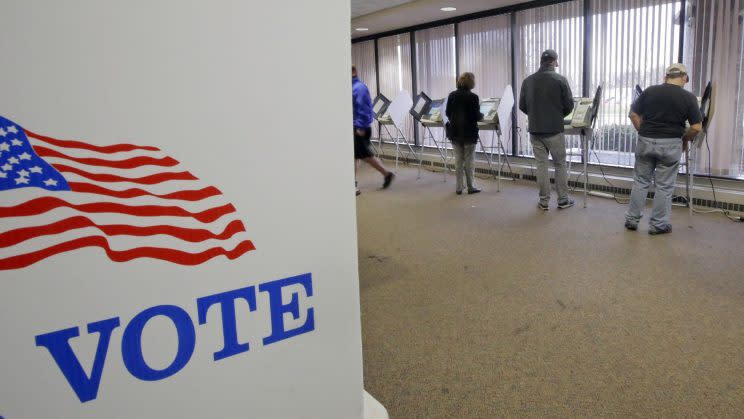Union super-PAC fights for Democrats now, with an eye toward redistricting in 2020

A union-funded super-PAC has spent $60 million this year on get-out-the-vote efforts, but the 2016 election is probably just a warmup for its real mission: helping Democrats gain an edge in the coming fight over congressional districts in 2020.
For Our Future, an organization funded by a handful of labor groups, has carried out organizing campaigns in seven battleground states this year and is establishing partnerships with local advocacy groups in those states to help them build political muscle. Billionaire Tom Steyer’s NextGen PAC chipped in a third of that $60 million.
The immediate goal has been to elect Hillary Clinton as president and assist Democrats up and down the ticket. Its advocates will have knocked on 8 million doors by Election Day, guided by voter data from Democratic analytics group Blue Labs, and they are experimenting with new approaches to reaching more voters through peer-to-peer text messaging.
But Amanda Brown, the campaign director for the group, said that FOF also intends to play a role in state legislative elections in 2017.
“There’s a ton of work to do in 2017 with even state [legislature] fights, a lot to do in these states,” she said in an interview.
The process of redrawing congressional districts happens every 10 years and is based on new census results. But state legislatures control the process in most states, and right now Republicans control the majority of statehouses across the country.
There are 98 state House and state Senate chambers across the 50 states that are divided by party (Nebraska’s unicameral legislature has just one chamber and is nonpartisan), and Republicans control 67 of them.
Fighting for control of more state legislatures will give Democrats more say over Congressional redistricting after the 2020 census, which could bring them closer to regaining control of the House of Representatives. Republicans now have a 60-seat majority, controlling 246 seats to the Democrats’ 186 seats, though they are expected to lose around 20 seats in Tuesday’s election.
FOF is not the first group positioning itself to play a role in the redistricting fight. The Republican State Leadership Committee announced a plan last year to spend $125 million over the next few years on state legislative elections. And Democrats have said they want to raise $70 million for a super-PAC effort called Advantage 2020 to fight back.

Brown said that FOF has placed 1,986 paid staff on the ground in the targeted states: Florida, Ohio, Pennsylvania, Nevada, Wisconsin, Missouri and North Carolina. The last two states were added to the list after the conventions in July and are the only states without a heavy labor presence.
FOF is also enlisting 1,200 staffers from its community group partners. In many cases, Brown said, it has had to help local nonprofits set up 501(c)(4) arms so they can receive money from FOF.
Brown said that organizing on the ground is usually carried out by political campaigns because it is easier to motivate workers to do the hard work of knocking on doors and facing rejection when there is a candidate, a human being, the organizer is working to elect.
“It’s a total grind, but you’re on a call at the end of the day with the candidate saying, ‘Thank you,’” said Brown, who previously worked as political director for Rock the Vote.
Finding people to do on-the-ground organizing for a super-PAC “requires a different level of commitment and engagement and education,” Brown said.
But the disadvantage of a campaign ground game is that the day after the election, it goes away, she said.
“The evolution of For Our Future was based on the fact that we’ve learned this lesson too many times, that we pack up and leave the day after the election. We need to start building: 2018 will be a battle for us, and 2020 — with redistricting happening — we have to lay this foundation,” she said.





